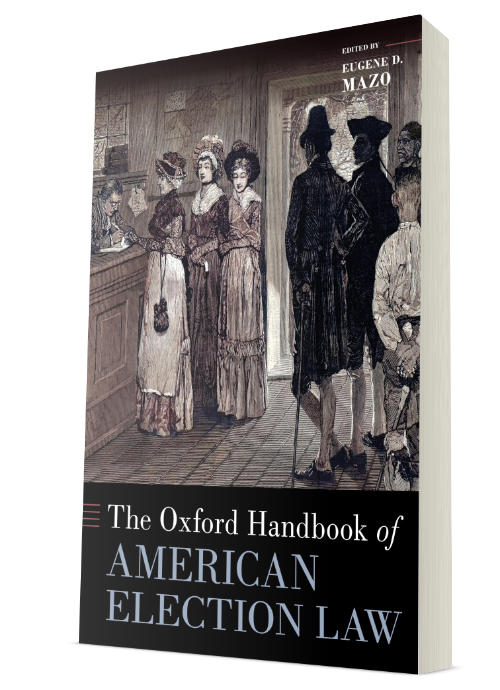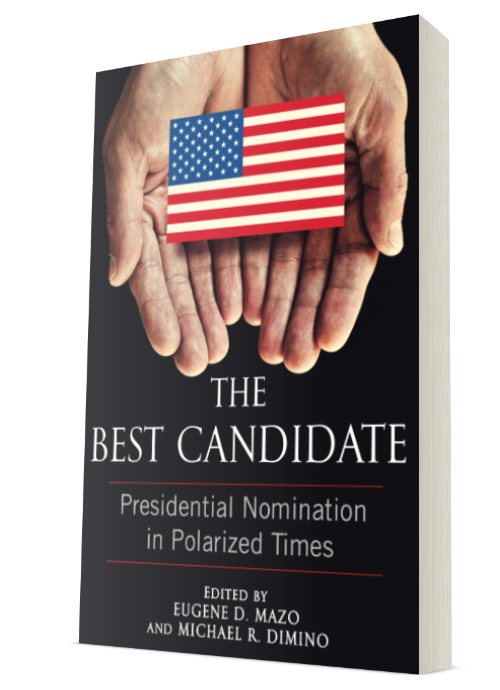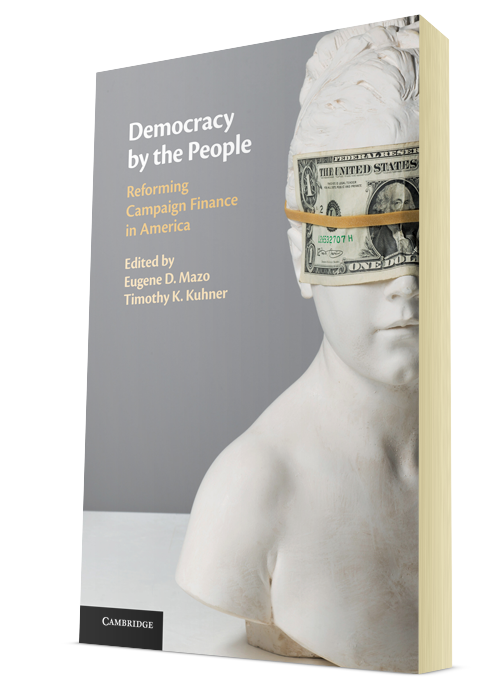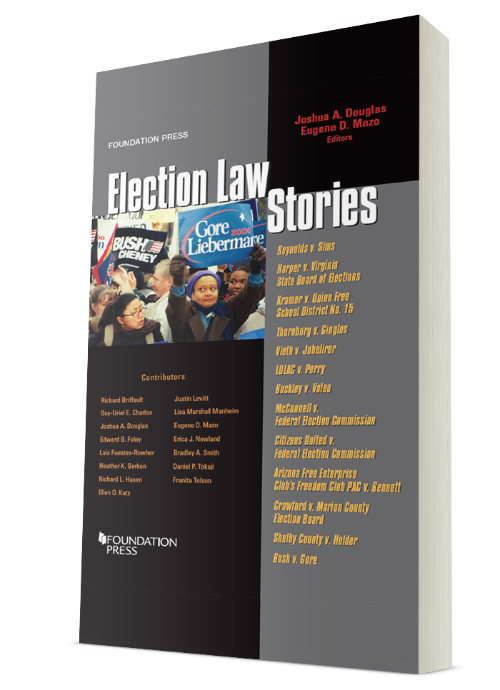Books
The Oxford Handbook of American Election Law

Oxford University Press (October 2024).
The Oxford Handbook of American Election Law offers a sophisticated overview of one of the most contested and consequential areas of American law. The book introduces the reader to election law's core themes, provides summaries of its leading cases, guides the reader through key scholarly debates, and suggests areas for future research. The first book of its kind in the field, the Handbook brings together forty-seven leading scholars of election law to explore the doctrines and debates that define this field.
The book begins by explaining how election law relates to its closest academic cousins, including constitutional law and political science. It then explores the major topics in election law, including the right to the vote, the rules of running for office, the role of political parties, the dynamics of redistricting and gerrymandering, the significance of the Voting Rights Act, the intricacies of campaign finance, and the recurring controversies surrounding election administration in the United States. Each chapter of the Handbook offers the reader a careful, detailed, and thorough analysis of thorny terrain, crystallizing controversial issues and situating them within the field's contemporary debates.
The book aims to reach newcomers to the field as well as more sophisticated readers who hope to gain a firmer understanding of election law's many nuances, intricacies, and complexities. Unparalleled in the breadth and depth of its coverage, the Handbook is designed to serve as a resource for students, scholars, policymakers, and practitioners.
The Best Candidate: Presidential Nomination in Polarized Times

Cambridge University Press (September 2020).
The way American citizens elect a president in November is enshrined in the Constitution and has remained unchanged for two hundred years. By contrast, the rules by which American political parties nominate their presidential candidates have evolved dramatically over time. In recent years, these byzantine rules have allowed a number of unexpected candidates to win their party's presidential nomination. In The Best Candidate, a roster of leading election law scholars from across the political spectrum - true-blue Democrats, die-hard Republicans, and everyone in between - illuminate the law behind the modern presidential nomination process and offer ideas for how it can be improved. This book offers a blueprint for how American voters and their parties could nominate the best candidate for the presidency, and it should be read by anyone who cares about the occupant of the Oval Office.
Praise
“Essential reading for all who strive to understand the presidential nomination process.”
Guy-Uriel E. Charles, Edward and Ellen Schwarzman Professor of Law, Duke Law School
“A definitive collection on a topic of surpassing importance.”
Pamela S. Karlan, Kenneth and Harle Montgomery Professor of Public Interest Law, Stanford Law School
“Here, finally, is a book about the law that shapes the road to the White House.”
Nicholas O. Stephanopoulos, Professor of Law, Harvard Law School
“Brilliant and wide-ranging, this work is a must read.”
Franita Tolson, Professor of Law and Vice Dean for Faculty and Academic Affairs, University of Southern California Gould School of Law
Democracy by the People: Reforming Campaign Finance in America

Cambridge University Press (October 2018).
Thanks to a series of recent U.S. Supreme Court decisions, corporations can now spend unlimited sums to influence elections, Super PACs and dark money groups are flourishing, and wealthy individuals and special interests increasingly dominate American politics. Despite the overwhelming support of most Americans to fix this broken system, serious efforts at reform have languished. It doesn't help that campaign finance happens to be a highly intricate and complex area of the law, and that the system works to promote the interests the incumbent politicians who oversee it. This illuminating book takes these hard realities as a starting point and offers realistic solutions to reform campaign finance in the United States. With contributions from more than a dozen leading scholars of election law, it should be read by anyone interested in reclaiming the promise of American democracy.
Election Law Stories

Foundation Press (April 2016).
This book tells the history of the leading cases in election law. Each chapter is authored by a foremost scholar in the field. It is part of Foundation Press’s Law Stories Series. The contributors include Richard Briffault (Columbia Law School), Guy-Uriel Charles (Duke Law School), Joshua A. Douglas (University of Kentucky College of Law), Heather Gerken (Yale Law School), Edward B. Foley (The Ohio State University Moritz College of Law), Luis Fuentes-Rohwer (Indiana University Maurer School of Law), Richard L. Hasen (University of California,-Irvine, School of Law), Justin Levitt (Loyola Law School, Los Angeles), Ellen Katz (University of Michigan Law School), Lisa Marshall Manheim (University of Washington School of Law), Eugene D. Mazo (Rutgers Law School), Erica Newland (J.D. Yale 2015), Daniel P. Tokaji (The Ohio State University Moritz College of Law), Franita Tolson (Florida State University College of Law), and Bradley Smith (Capital University Law School).